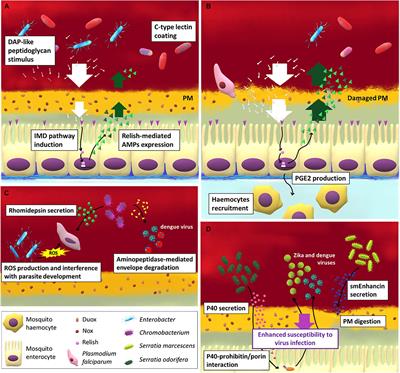EDITORIAL
Published on 18 Jan 2022
Editorial: Microbiota: A Consequential Third Wheel in the Mosquito-Pathogen Relationship
doi 10.3389/fmicb.2021.811880
- 1,603 views
20k
Total downloads
83k
Total views and downloads
EDITORIAL
Published on 18 Jan 2022
ORIGINAL RESEARCH
Published on 28 Jul 2021

ORIGINAL RESEARCH
Published on 07 Jul 2021

ORIGINAL RESEARCH
Published on 18 Jun 2021

ORIGINAL RESEARCH
Published on 08 Jun 2021

ORIGINAL RESEARCH
Published on 12 May 2021

ORIGINAL RESEARCH
Published on 30 Apr 2021

REVIEW
Published on 06 Apr 2021

ORIGINAL RESEARCH
Published on 17 Feb 2021

ORIGINAL RESEARCH
Published on 16 Feb 2021

ORIGINAL RESEARCH
Published on 28 Jan 2021

MINI REVIEW
Published on 21 Jan 2021

